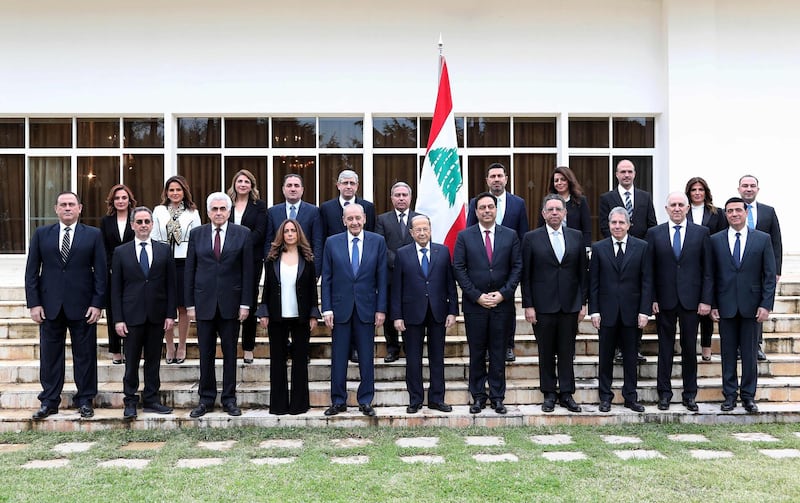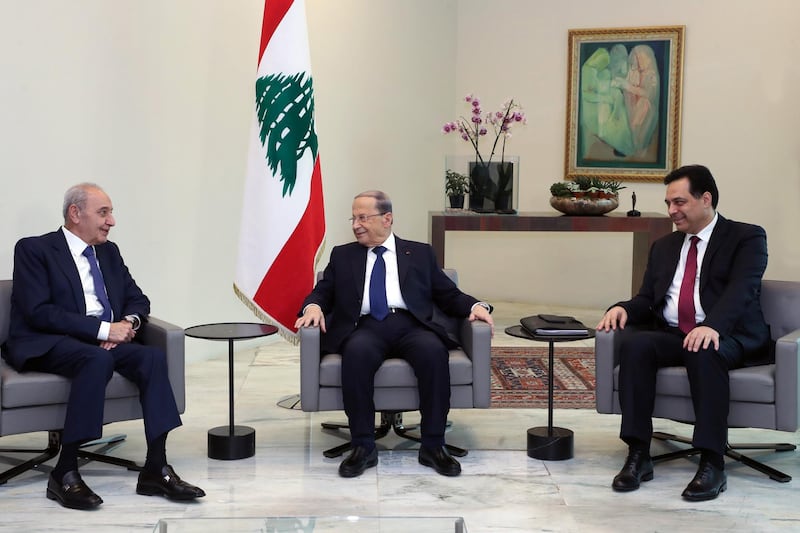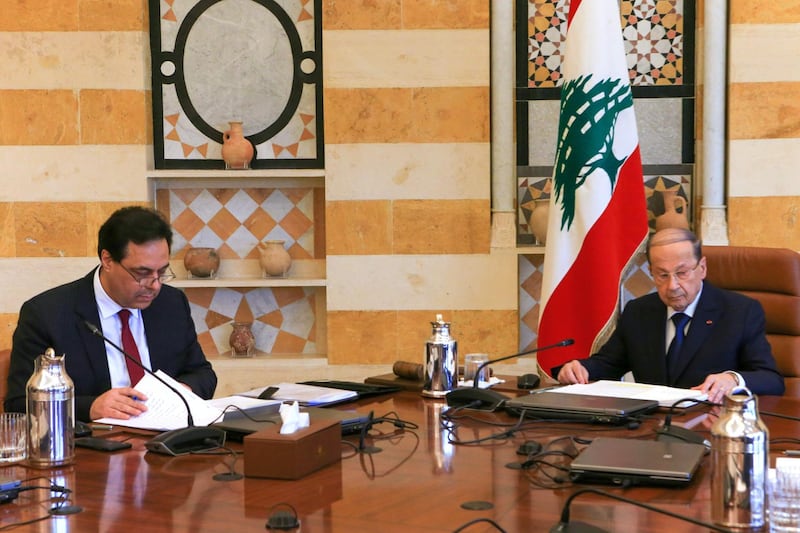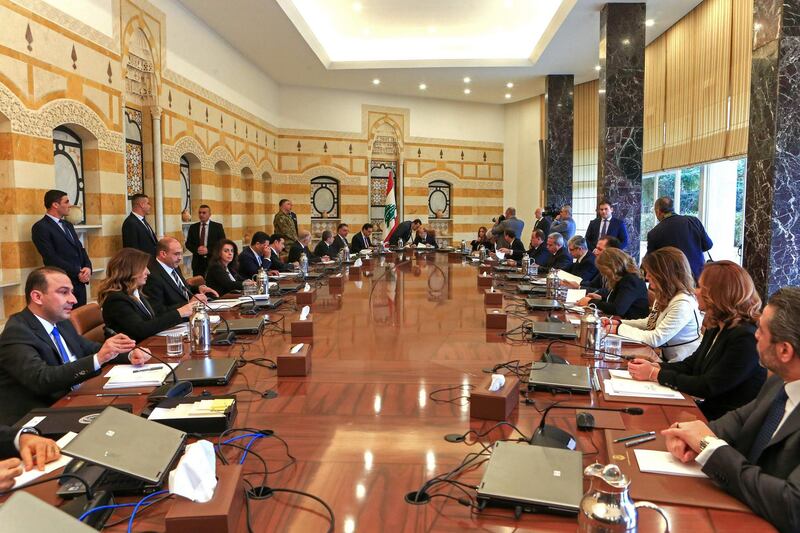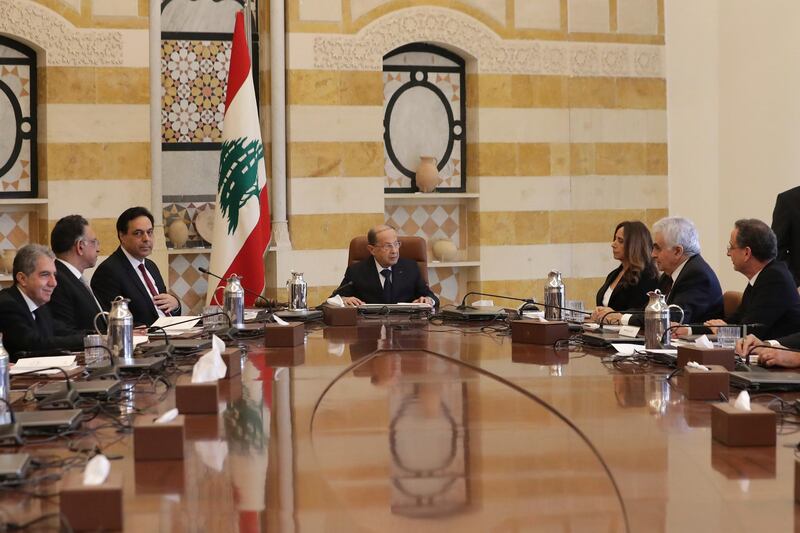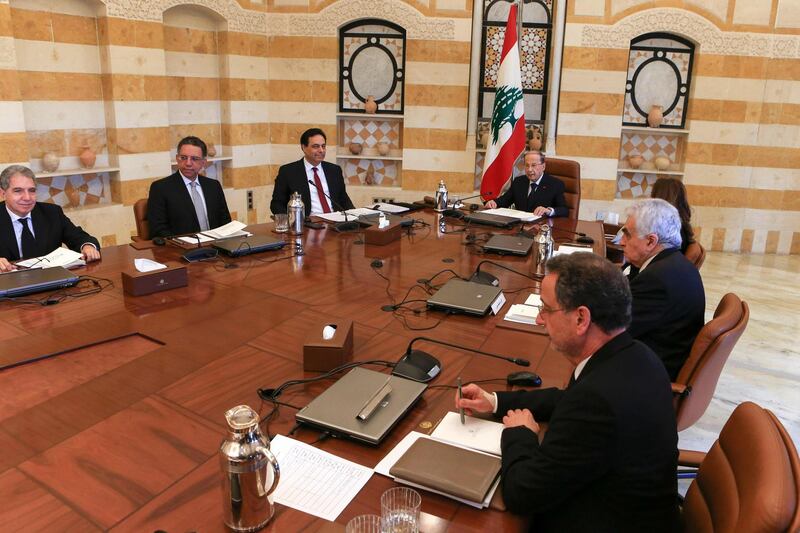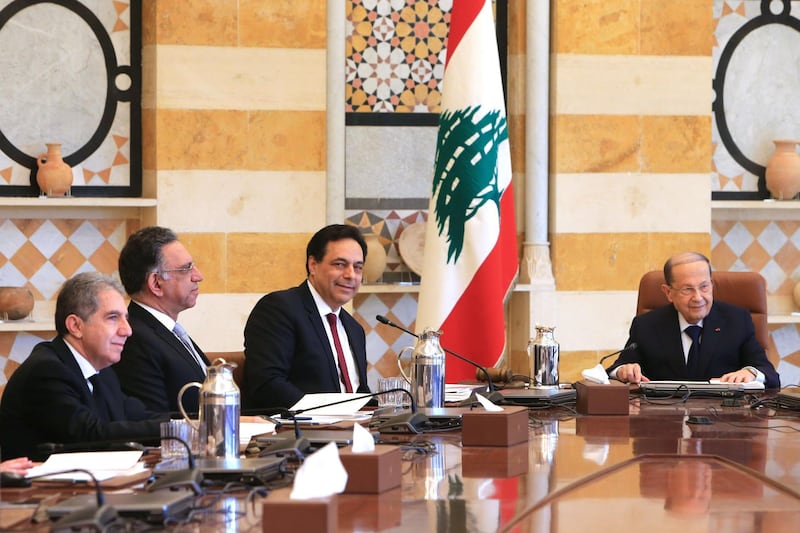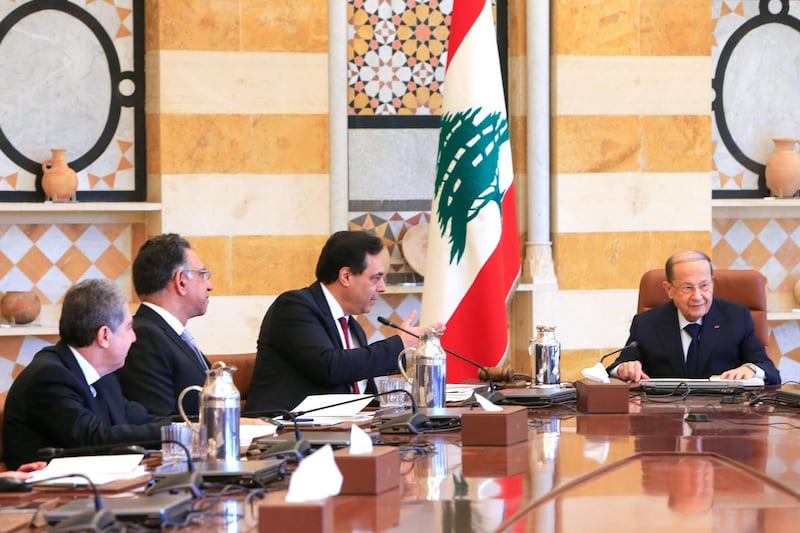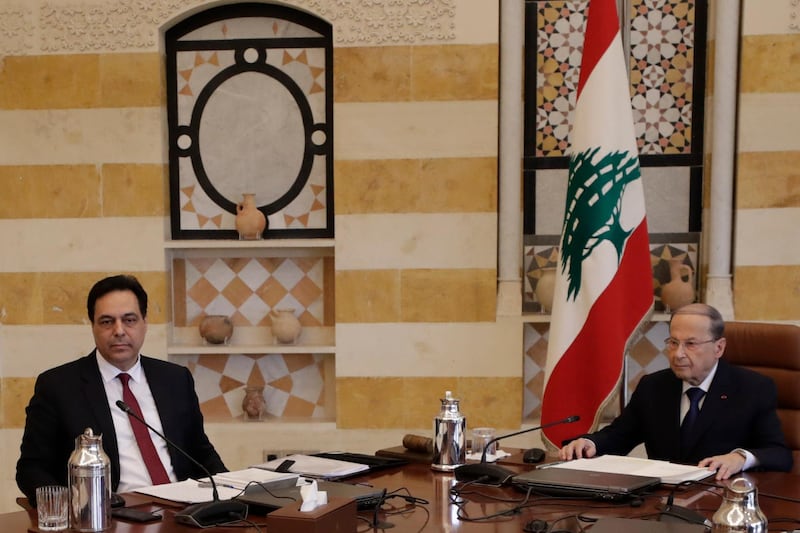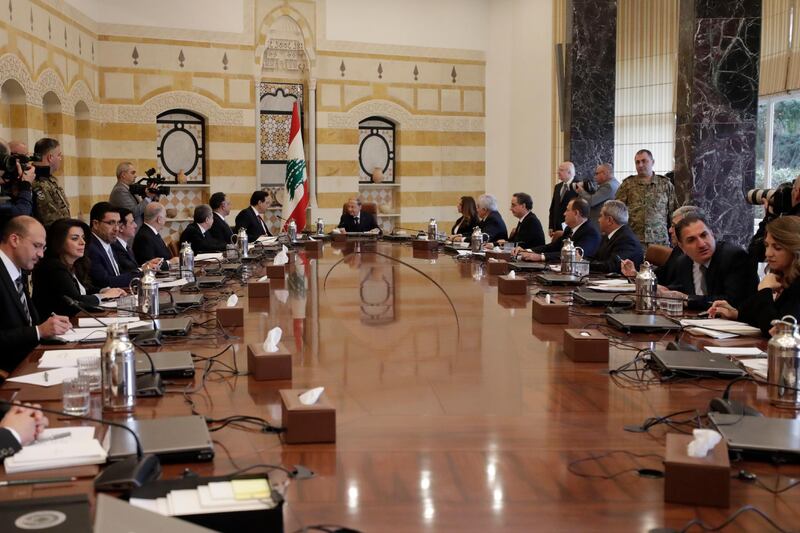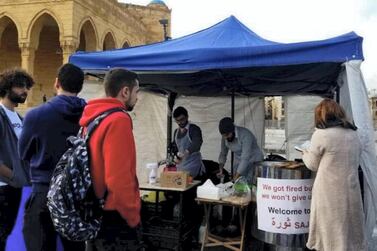Lebanese Prime Minister Hassan Diab on Thursday pledged not to run in the future parliamentary elections or support any candidates.
Deputy Prime Minister Zeina Akar and the other 18 members of Cabinet also signed up to Mr Diab's pledge not to run in the next election.
The current administration is a departure in Lebanon where the bulk of ministers are usually also MPs.
In recent years, discussions have been raised about having a government not also elected to parliament as it prevents one body overseeing the work of the other. However, many senior figures – including former prime minister and Future Movement head Saad Hariri or former foreign minister and Free Patriotic Movement head Gibran Bassil – served multiple times in both chambers.
No elections are scheduled until 2022 although some have suggested that a vote should be held early given mass anger on the streets since October.
Mr Diab stated his Cabinet's plan to abstain from standing on January 21.
“There are no MPs [in the government], and no candidates for the next parliamentary elections," he said.
His would be "a government of specialists that will only be held accountable to the language of science, reason and expertise and the interest of the nation," he added.
Months of anti-government protests have rocked Lebanon, with demonstrators calling for a change in political leadership.
تعهدت مع السادة الوزيرات والوزراء بعدم الترشح او عدم دعم أي مرشح بأي شكل من الأشكال في الإنتخابات النيابية المقبلة#لبنان https://t.co/DxxA5jdpss
— Hassan B. Diab (@Hassan_B_Diab) February 13, 2020
The Lebanese parliament passed a vote of confidence in the cabinet this week, with just 84 of the chamber's 128 MPs attending the parliamentary session as protesters raged and blocked roads outside.
Sixty-three MPs voted in favour of the new government with one abstention and 20 against.
Mr Diab, a former professor at the American University of Beirut, presented his choices for the new government in late January. The prime minister was selected after Prime Minister Saad Hariri resigned at the end of October, two weeks after the nationwide protests erupted.
The letter on Thursday came as Lebanon's President Michel Aoun asked ministers to start working on the 2021 state budget, Information Minister Manal Abdel Samad said after the new cabinet's first meeting at Baabda Palace.
The heavily indebted state is facing a financial crisis and must quickly decide whether to repay maturing foreign currency debt on schedule, including a $1.2 billion Eurobond due on March 9.
Ahead of the Cabinet session, Finance Minister Ghazi Wazni said that there were several options open to the government over the repayment.
“We will continue discussions in order to make the right decision,” Finance Minister Ghazi Wazni said.
Imad Salamey, a political analyst in Lebanon, said the situation was unprecedented.
"This is unprecedented since the 2005 government headed by Mikati," he said.
"The 2005 Mikati government was established as an interm government with the sole purpose of preparing for elections.
"This government is attempting to gain the confidence of the public by presenting itself as having no political ambitions other than confronting current crisis.
"The 2005 government organised elections within three months after its formations, there are three more years of elections ahead of the current government.
"So it is presenting itself as sustainable and non partisan while it represents only Hezbollah and allies."
